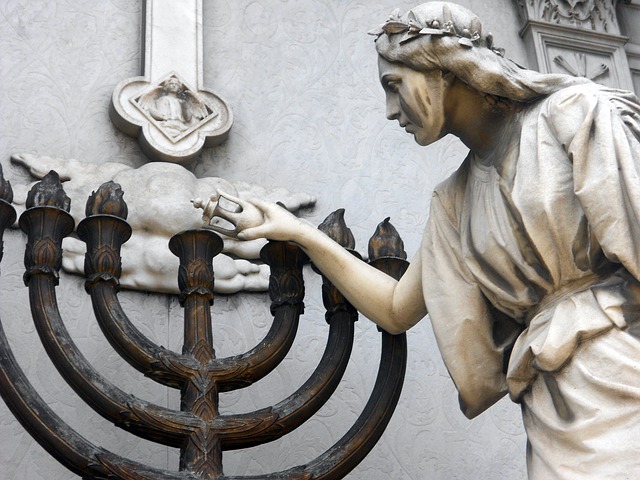 |
|
BLOG
The Best and Most Important Television Show You Have Never Heard Of
While I am by no means a big television watcher, this has been an exceptional time for fans of Israeli TV. Shows like Fauda and Shtisel (both on Netflix) allow audiences to get a glimpse of what life is like within different, and hard to reach, facets of Israeli society.
What is life like for the families of Palestinian terrorists and Israeli soldiers who commit their lives to army service? How does it affect their community? What are the day to day dramas that take place within the insulated world of Ultra-Orthodoxy?
These are just a few of the questions that these Israeli TV series attempt to answer, and audiences everywhere will end up with a more honest and nuanced view of the situations involved.
As both a professional Israel educator and someone with a vested interest in Israeli society I am always on the lookout for new and interesting media coming out of the Jewish homeland. And, when I find valuable content, I try and share it with as many people as possible.
The premise for the new Israeli series Autonomies (trailer here) is a future Israeli society that is torn apart by conflict. And no, not conflict between Jews and Arabs but between Jews and other Jews.
As the Israeli government pushes anti-Haredi policies such as mandatory army service and the defunding of Yeshivot, the Ultra-Orthodox community cannot take it any longer. A civil war between religious and secular Israel culminates in the creation of two-states: A theocracy governed by strict Jewish law in a walled off Jerusalem and a liberal democracy in the rest of Israel.
It is with this premise that this astute piece of social and political commentary begins. While I will not get into any spoilers (you should watch it for yourself), there are a couple of fascinating aspects to point out regarding Autonomies.
The imagery that the show uses is absolutely incredible. As it was all filmed in Israel the choices that the producers made in terms scenery added to the overall message of the story. First, the actual separation barrier between the West Bank and Israel formal is used as the border of the two autonomies in the show. The way to pass through one autonomy to the other is via a checkpoint, the reality in the West Bank and Israel today.
The message is clear. The hatred and political disagreements between the Haredim and Israelis is as fierce as the current Israeli-Palestinian conflict. In fact, it is telling that in this show there is no real discussion about the Palestinians or terrorism as we find out rather quickly that there is an independent Palestinian state and all is calm on that front. The real conflict is intra-Jewish.
Now whether this show is a political commentary on present affairs in Israel or a prognostication for the future is not so much the point. Rather this show elucidates the fact that there is a real fundamental tear at the heart of Israel’s political sphere.
Liberal democracies can’t maintain themselves without buy in from the vast majority of the public. And, as we are slowly realizing from across multiple places across the globe, it is no gimme that vast majorities will choose to defend and stick by the foundational ideas of liberal democracy. As the population of the Ultra-Orthodox increases compared to the overall Israeli population, Autonomies becomes more of a reality by the day.
Can the Jewish community in Israel leverage our 2,000 year tradition and fundamental value of rigorous but civil debates to ensure the integrity of civil society, or is Israel headed down a path of total fragmentation that is, perhaps, fundamentally irreparable?
Moshe Daniel Levine is a regular contributor of blog postings on Jewish Values Online.
Please note: All opinions expressed in Blog Postings and comments on the Jewish Values Online site and through Jewish Values Online are those of the author, and do not necessarily reflect the views, thoughts, beliefs, or position of Jewish Values Online, or those associated with it.
 Discussion about the status of women in Israel has been featured heavily over the years. What is the biblical and rabbinic view of the status of women in Jewish society? What do the various movements in Judaism say about this?
Discussion about the status of women in Israel has been featured heavily over the years. What is the biblical and rabbinic view of the status of women in Jewish society? What do the various movements in Judaism say about this?See answers from Orthodox, Conservative and Reform rabbis here.
If you have a question about Jewish values that you would like to ask rabbis from multiple denominations, click here to enter your question. We will ask rabbis on our panel for answers and post them. You can also search our repository of over 800 questions and answers about Jewish values.
For more great Jewish content, please subscribe in the right-hand column. Once you confirm your subscription, you'll get an email whenever new content is published to the Jewish Values Online blog.
For more great Jewish content, please subscribe in the right-hand column. Once you confirm your subscription, you'll get an email whenever new content is published to the Jewish Values Online blog.
|
|
|
Jewish Values Online
Home | Search For Answers | About | Origins | Blog Archive Copyright 2020 all rights reserved. Jewish Values Online N O T I C E
THE VIEWS EXPRESSED IN ANSWERS PROVIDED HEREIN ARE THOSE OF THE INDIVIDUAL JVO PANEL MEMBERS, AND DO NOT
NECESSARILY REFLECT OR REPRESENT THE VIEWS OF THE ORTHODOX, CONSERVATIVE OR REFORM MOVEMENTS, RESPECTIVELY. |